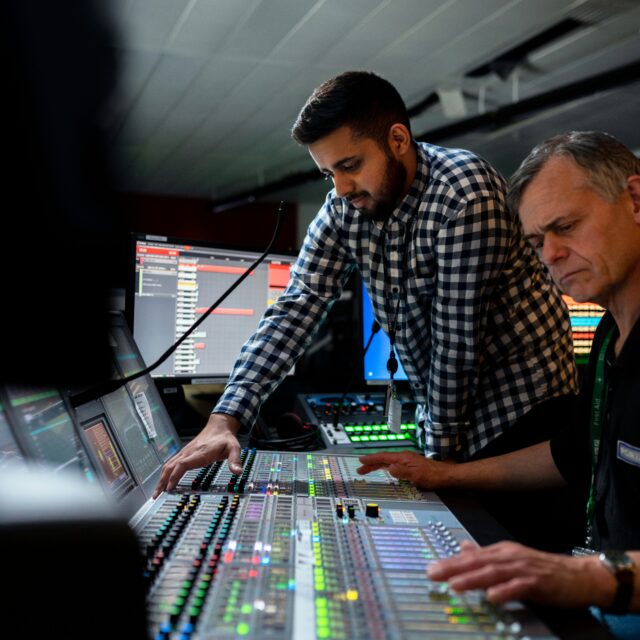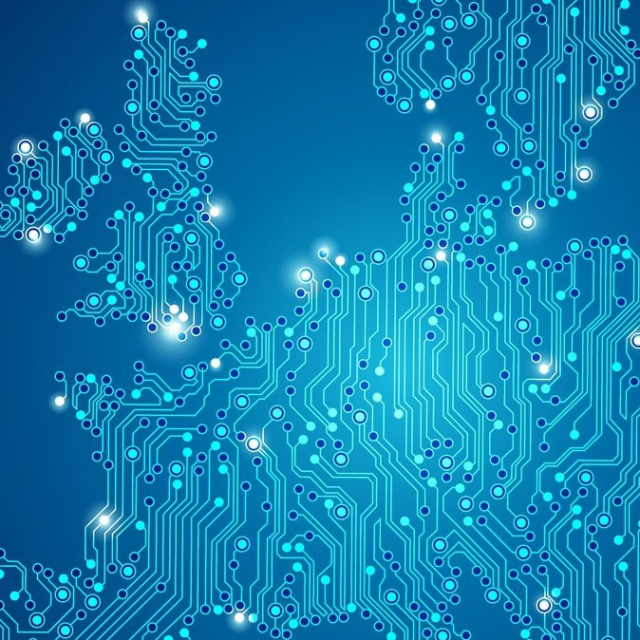In an exclusive Q&A with EU Political Report, top Ukrainian lawyer Kostiantyn Kryvopust, a member of the International Union of Lawyers (UIA), gives an insight into the cryptocurrency market, Ukrainian-style “digitalisation” and the prospects for a “digital law”.
EU Political Report: What legal problems have businesses faced in Ukraine during the pandemic?
Kryvopust: I see three problematic blocks. The first is the execution of contracts during the epidemic. The second is the protection of competition. The third is the implementation of investment guarantee agreements. In the first case, we are talking about the failure of contracts due to lockdown and the uncertainty of the question – should the lockdown be considered force majeure? In the second case, we are talking about quarantine restrictions that have affected the activities of exporters, as well as measures to support national business, which may be regarded by foreign companies as discriminatory.Finally- and let’s be frank, Ukrainian business is less protected from a legal point of view in Ukraine compared to foreign companies, which are often additionally protected by international agreements on investment protection. All of this can create legal problems and financial costs.
EU Political Report: How do you see the solution to these problems?
Kryvopust: According to the World Health Organization (WHO) the coronavirus pandemic may occur in waves within the next two years. No one knows what new virus strains will be confirmed and how effective the mass vaccination implementation will be. This means that governments will have reasons to impose new restrictions and maintain existing ones. It is necessary to begin to work out and eliminate the gaps in the legal framework, first at the international level, and only then at the national level, in order to adapt to the new realities as soon as possible. Global problems are better solved globally.
EU Political Report: How serious are the consequences of the pandemic for the economy, who will benefit and what changes at the level of legal norms may follow?
Kryvopust: Clearly, there will be changes, from a reset in the business of technology giants, self-employment and approaches to guaranteeing the competition of technology platforms, to the protection of personal data, regulation and taxation of online commerce and neobanking.
At the same time, it will be necessary to do something with the existing social protection systems: medicine, employment, pension benefits. Take as an example the Western model of pension benefits, based on contributions from employers and future pensioners. The existing systems were the product of growing industrial economies, traditional labour markets, mass employment, and population growth. Today, this is the outdated hangover of the past. We can shape the new reality by remote employment, lockdowns, the crisis of some types of labour and business, an ageing population and dynamic migration. As it stands, pension systems will no longer be able to cope with these challenges in the medium term.
EU Political Report: You’ve mentioned neo-banking. How promising is this business in Ukraine today?
Kryvopust: Many companies work in this field and several dozen more are in the process of registration. This is a very promising business, because it allows you to save on renting premises, paying for a large staff of employees and collection costs.
As a rule, non-banks in Ukraine work with traditional banks as this helps to meet the requirements of regulators. The ability to open clients’ accounts and the fund use on them means startups in the field of neobanking will have to purchase a banking license or build a collaboration with one of the existing banks. It will also be impossible to issue bank cards and use payment systems without a bank. The wider the range of services, the more licenses are required.
The alternative is to open accounts and issue payment instruments abroad. But it will cost more.
I think that in 5 years, neo-banks will push traditional banking institutions in almost all types of financial services. The legalisation of cryptocurrencies will only encourage these transformations.
EU Political Report: How do cryptocurrencies take root in Ukraine?
Kryvopust: I will begin my answer with one important explanation. The new political team in the leadership of Ukraine initially has made a bid for the digitalization of the state, mainly, the conversion of administrative services, document management and communications into digital and Internet applications. In this regard, we are undergoing significant changes. We have every chance to become one of the most “digitised” states in Europe in a few years. Therefore, everything related to the use of smart technologies, block chain and cryptocurrencies also have great potential in Ukraine.
The number of unique users, daily turnover and the number of settlements are constantly growing at our cryptocurrency exchanges. In my practice, agreements where the payment instrument is cryptocurrency are now more and more common. Cryptocurrencies can be seen even in the tax returns of Ukrainian politicians. But for now, it’s just a fashion trend among the well-heeled. The main problem of this market is the lack of a fully-fledged legal regulation and high volatility.
The legal settlement will allow transforming cryptocurrencies from quasi-money to super-money of the new economy.
Recently Political Report: Is it true that officials and representatives of criminal business have already managed to work out the advantages of cryptocurrencies?
Kryvopust: Yes, such a problem really exists. Many online drug dealers transfer electronic money into cryptocurrency and then withdraw and convert it abroad. In addition, the cryptocurrency is gaining more and more popularity among advanced corrupt officials. In recent years, the FATF has been paying serious attention to these issues and pushing nation-states to take a more active law enforcement policy in this area. This proves once again that the problem exists and it needs to be solved.
Recently Political Report: Some post-Soviet states have already created a preferential treatment for companies operating in cryptocurrencies. Will this help them become leaders of the new economy?
Kryvopust: To do this, you need to be at the forefront of understanding the new economy and developing appropriate norms. In addition, openness and the rule of law are critical. The Belarusians did a lot and became pioneers of the cryptoeconomy in the post-Soviet space, but the political regime began to close and digital business began to migrate from this harbor.
EU Political Report: To what extent is the digitalisation of the state in Ukraine legally secured?
Kryvopust: This is why I called our state “digitised”, not “digital”. Innovative norms are adopted in parallel with the operation of Soviet laws and without the modernization of the Constitution. At the current stage, this is not very obvious and does not create contradictions, but at a certain stage we will definitely face problems of a fundamental nature.
EU Political Report: Recently, the media has reported that the National Bank of Ukraine, with the support of the IMF, would like to create a specialized Financial Court. Can you comment on this?
Kryvopust: As far as I understand, this is an initiative of the National Bank of Ukraine which would like to create a separate instance to protect the interests of creditors and reduce the share of outstanding loans. To be honest, I don’t think this is a good and realistic idea.
Let’s see how the specialized Anti-Corruption Court of Ukraine was created. It took about 5 years and huge financial resources to create and conduct competitive procedures. In order for it to be able to fully work, the existing law enforcement agencies were reformed and new bodies were created: the National Anti-Corruption Agency (NAPA), the Specialized Anti-Corruption Prosecutor’s Office (SAPO), and the National Anti-Corruption Bureau (NABU). At the same time, the anti-corruption infrastructure is still not effective enough and periodically fails.
To create an Anti-Corruption Court, there was a consensus in society and a clear political will of the ruling elites. When this began to waver, international partners were involved and the process moved forward. But I’m not sure that this new idea has enough sympathizers today.
Outstanding loans are not such a global problem as to justify creating a separate judicial institution for it. What is to be done then with problematic mortgages, contradictions in land relations, labour disputes and lawsuits during quarantines?
EU Political Report: What should we expect the soonest: the emergence of a separate “Digital Law” or the development of norms of “Space Law”? Recently, for example, the UAE has already taken the initiative to create a Space Court.
Kryvopust: It seems to me that digital law will appear a little earlier, because the market for all kinds of virtual assets is now estimated at several hundred billion dollars and there are already many interesting precedents in this area. Users of social networks, gamers, people who install Internet applications and buy virtual goods – all these are owners of virtual property who have real problems with the rights to use it.
This property is often worth real money and brings real income, but it can be stolen, this property can be blocked by the administration of the service, they may want to dispose of user agreements click wrap outside the framework.
All these issues need to be resolved. The European Court of Human Rights could well be the engine of this process and make an important contribution to the formation of the so-called “Digital Law”.
As for “Space Law”, this idea has long been discussed by experts. But the national space court sounds contradictory. After all, this is the prerogative of international authorities. The current legal framework in the field of space was created in the 1970s and is noticeably outdated. It is necessary to develop a new cosmo-ethics, and only then the norms of law and the judicial apparatus. The most difficult issues in this area relate not so much to commercial contracts, but to understanding more general principles, among which are: can the space area be privatized and nationalized; where are the boundaries of what is allowed and what is not allowed; under what jurisdiction do the actions of the subjects of relations in space fall, etc. This is a real global challenge for lawyers.




